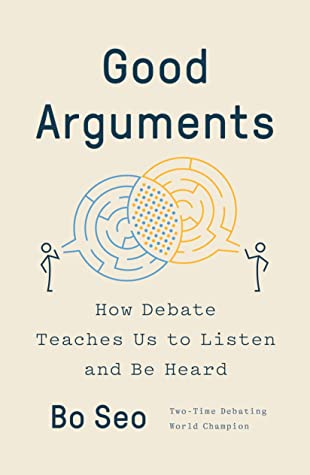Does that sound like an oxymoron? A good argument. Think of the last time you argued with someone: did the conflict get resolved, or did you both give up and/or agree to disagree*? (Or agree to cut ties, even?) When was the last time an argument or debate that you had actually ended with both you and the person you were arguing with coming to an understanding of what the other had said, both of you knowing that each understood what the other meant instead of just repeating your own point and trying to convert the other?
I’m reminded of one time I took up a debate just for fun in university with my friend while we were working away in the print studio. I think of it as one of the examples in my life of how good a good debate can go and how fun it can be: no ad hominem attacks, no tempers flaring, no voices raised. We took each other’s arguments into consideration and came back with counterarguments, and when we ran into a case where it seemed like maybe we had too vague a term in place (“morality”), we decided to define it together in order to make sure we knew what we were debating about (just think of the last time the term “political correctness” was brought up in an argument: wouldn’t we do better to define our terms?). In part, I think this was because both of us knew that whatever side we were arguing for didn’t actually say anything about us as people (i.e. we weren’t committed to our sides and didn’t identify with them**), so we took it in good fun and really listened. There was also I think an implicit agreement that we both understood this exercise to be a debate, and that we would both adhere to the unspoken rules of being respectful, not interrupting, and not making it personal. Mostly, it sticks around in my memory because another friend of ours also working in the studio at the time said to us as we wound down our arguments: “I don’t think I’ve ever heard an argument go like this before. You two were so respectful, didn’t attack each other, didn’t raise your voices, and you’re actually listening to one another! That’s amazing!” And it kind of was. But it also occurred to me that that shouldn’t have been amazing at all: is the bar this low?***
Continue reading →


